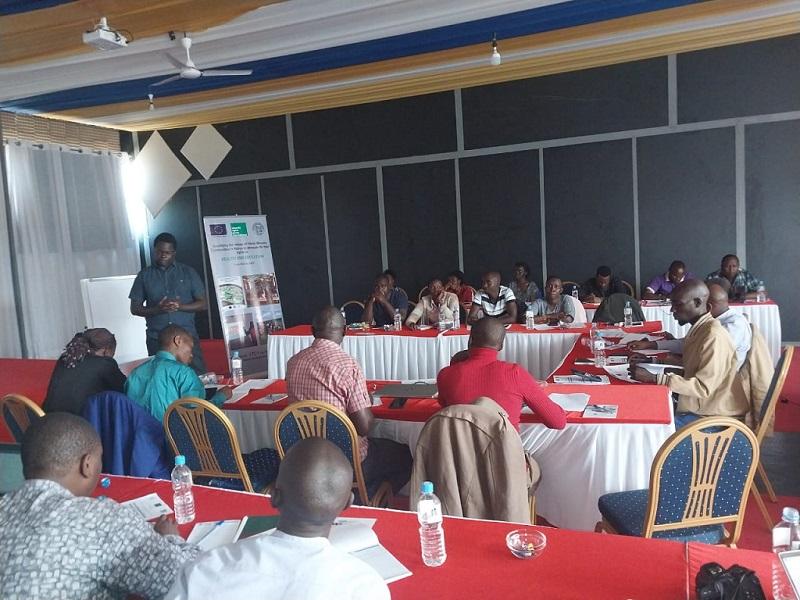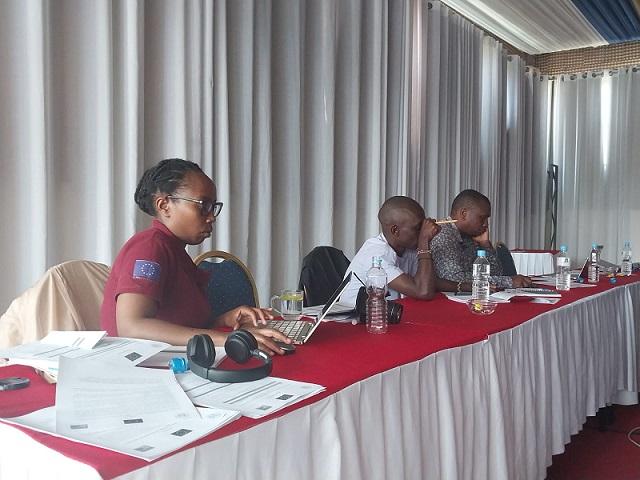I’m participating in a refresher training on international human rights and budgeting process and sustainable development goals. Our focus was on goal 3 and 4 which focus on education and healthcare.

The training was made possible through financial support from the European Union Delegation to Kenya.
The meeting was organized by Ogiek People’s Development Programme (OPDP) and Minority Rights Group (MRG).
The meeting brings together Community Health Volunteers (CHVs) and Human Rights Defenders (HRDs) from ethnic minority communities from 6 counties in Kenya representing Endorois, Ogiek of Mau, Ogiek of Mt. Elgon, Boni or Awer of Boni forest and Sengwer of Embobut forest in Elgeyo Marakwet.
These communities listed above have experienced serious human rights violations from colonial times to subsequent governments by being forcefully being displaced from their land where they were custodians due to environmental conservation programmes.
These violations have distorted their ways of life pushing them deep into extreme poverty and further marginalization. Significant inequalities persist in rural households especially among the minority and ethnic communities who experience poor delivery of services by the government. This is compounded by the fact that these communities are located in remotest areas and they are impacted by poor infrastructure.
The Constitution of Kenya, 2010 creates a devolved form of government with a national government and 47 counties. Health sector was one of the devolved functions, however, there remain notable inequalities in access to healthcare for ethnic minorities in Kenya.
Access to education remain an uphill task for instance, in some places children travel for up to 10 kilometers in their quest to access education. This contributes to a high rate of school dropouts as well as early marriages.
Further, there are harmful socio-cultural practices which complicate the situation which is already worse. The findings further reveal poor policy design and implementation. Pupils are required travel long distances through rough terrain. This also has an effect on the number of teachers who are willing to work in such conditions.
This project has strengthened the capacity of human rights defenders to be able to mobilize people to actively participate in formulation, enactment, implementation and oversight in the planning and budgeting process in Kenya.
These human rights defenders have been working closely with members of the community in their respective counties in effort to improve access to quality education and healthcare.
This important team has been involved in development and submission of proposals and memos. The Human Rights Defenders have continued to take lead in supporting the communities in advocating access to education and health and have registered positive outcomes including increase in community members’ participation in budgeting processes, and understanding of the laws which has promoted community engagement with the duty bearers.
There are 17 Sustainable Development Goals. However, for the purpose of this workshop our trainer focused on Goal 3 and 4. These are the main focus of the project titled: Ethnic Minority Defenders.
International standards on the Right to education
There are 4 A’s in the right to education:
a) Accessibility – non-discriminatory and accessible to all.
b) Availability – Education has to be available to all. There should be adequate infrastructure in terms of classrooms, staff rooms and administration, laboratories and libraries in order to achieve inclusive and quality education.
c) Acceptability – Is the education offered culturally acceptable? This is a key question.
d) Adaptability– Education should be able to change with time.

End

